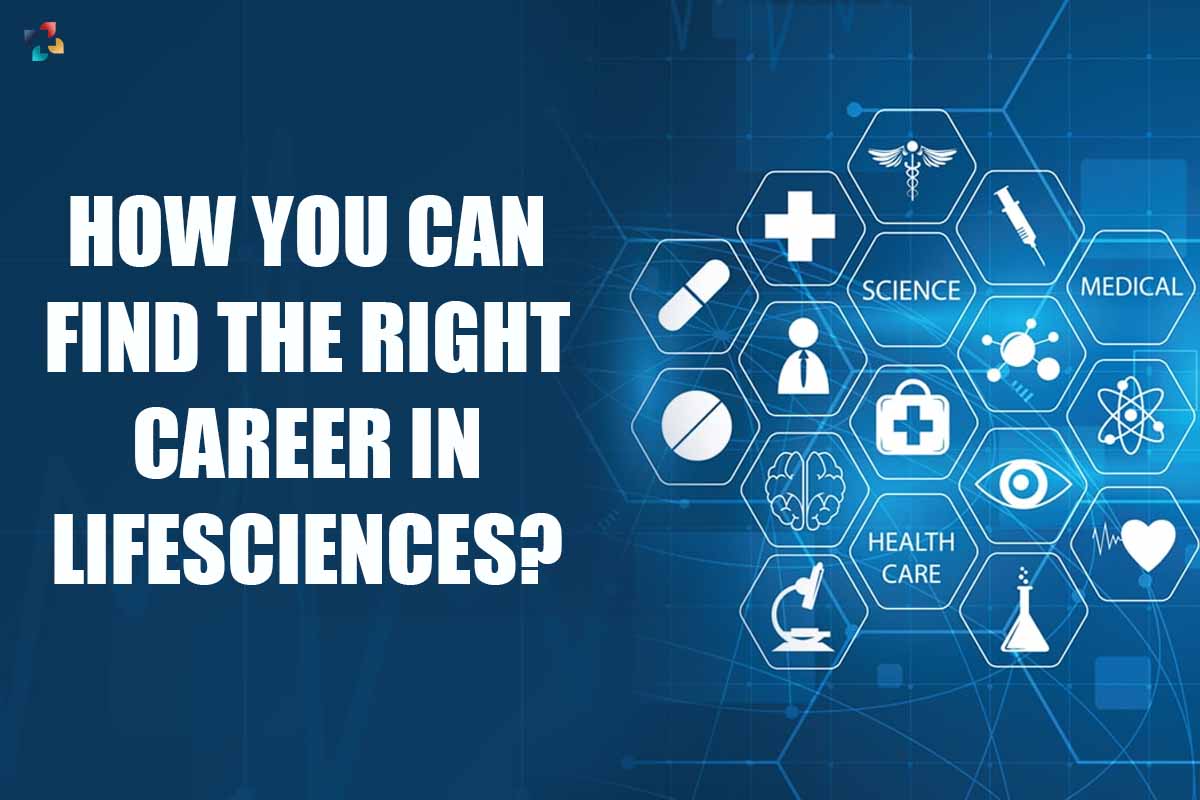If you’ve ever been unsure about your Career in Lifesciences or are unsure which job will best fit your interests and requirements, look no further! Preclinical has made it possible to match your interests and skill set with many job opportunities accessible in the life science business, such as pharmaceuticals, biotechnology, and medical devices.
Each area covers a certain ability or interest and provides a quick overview of which vocations line up and what it takes to be successful. This guide is by no means thorough, but it may be able to point you in the right direction.
How Can You Find the Right Career in Lifesciences?
Many life science graduates pursue a career in clinical trials. Clinical testing is an important aspect of the medication lifecycle because it determines the safety and effectiveness of a medicine or therapy by testing it on groups of volunteers and patients.
If you thrive on regular connections with patients and physicians, a job as a clinical research associate (CRA) may be suitable for you. CRA roles include a broad variety of responsibilities, including monitoring patients and data, managing clinical supplies, processing case report forms, and coordinating the start-up and shutdown of trial sites. A busy CRA’s day is never boring! You’ll need to be incredibly versatile and flexible since you may be needed to visit several places. A willingness to travel often is required.
If you want to work in drug safety that is both medical and patient-focused, you may look at pharmacovigilance (drugs) or materiovigilance (materials) (medical devices). This is the technique of discovering, analyzing, and preventing side effects. The sector is mostly for doctors, however, there are some opportunities for non-physicians to do Career in Lifesciences.
These professions often begin with case processing and entering side effects, but may swiftly proceed to management positions such as senior drug safety officer or systems manager. If you are interested in the technical side of things, positions such as pharmacovigilance scientist, epidemiologist, or risk management may be of interest to you.
Here are some tips to find the right career in lifesciences;
1. You must be enthusiastic about scientific research.
A career in Lifesciences is diverse and can apply to many industries.
Scientific and preclinical occupations are critical for developing medications and therapies. You would be engaged in the early phases of identifying a treatment or product and assessing its safety and effectiveness before it enters clinical trials. There is an industry lack of people working in research and development, so if you think you may be interested, keep reading!

These positions need a solid academic background in disciplines such as chemistry. As a research scientist or development/analytical chemist, you will be in charge of the scientific development and testing of medicine at any step, from conception through manufacture. Ph.D. students do a lot of preclinical research, so if you’re interested in continuing your education, this is an option.
2. You have to be enthusiastic about patients well being.
If you’re interested in making a career in Lifesciences. This sector has some overlap with preclinical laboratory work, although there are many additional career choices within quality assurance. If you are concerned about the well-being of patients or just like ensuring that things operate properly, this is the job for you.
When you think about it, whole healthcare systems rely on pharmaceuticals and medical equipment operating correctly and to a high level, so you’d be performing a highly useful job! Roles such as a qualified person, QA associate, or QA consultant would need you to do checks, write procedures, record correct accounting, and carry out any necessary analytical tests. You’ll need a keen eye for detail as well as an analytical mind. Corrective and preventive action (CAPA), grievances, and quality systems are a few areas in which you might specialize.
If you’re interested in engineering, you’d be in high demand (and highly compensated!) as a validation engineer. You would use your skills to guarantee that the medicine or gadget is effective. You would go through processes and summary reports produced by qualified specialists.
Regulatory affairs occupations are focused on the regulation of new pharmaceuticals, drugs in development, drugs under patent, and drugs that have expired. Regulatory specialists ensure that the product is safe and effective so that it may be authorized by the appropriate health authority. This is required in order for the corporation to promote and sell it to the general public. It bridges the gap between genuine scientists, real subject matter specialists, and assessors at the appropriate authority.
Positions in this diverse sector include regulatory associate, regulatory affairs (RA) officer, and RA consultant, with tasks including the creation and submission of regulatory documents as well as assuring regulatory compliance. Your work description will change and extend as you advance in rank and specialization. Clinical/medical devices, labeling, chemistry, manufacturing controls (CMC), post-licensing, and compliance are all areas of expertise.
3. You must be able to communicate.
A Career in Lifesciences would fit you if you have solid technical knowledge as well as excellent communication and interpersonal abilities. Medical affairs professionals are engaged in all aspects of the medicine or product’s development, from (clinical) development through marketing. In the case of pharmaceuticals, you may serve as a disease specialist or counselor to the medical community.

Going into medical communications is an excellent alternative for people who wish to combine their writing skills with their scientific knowledge and experience. As a medical or scientific writer, you’d be responsible for generating publications that effectively explain medical information while adhering to structural and regulatory criteria.
A job in medical science liaison (MSL) may be right for you if you are a good influencer and love developing connections. As a medical information expert, you would be primarily responsible for establishing relationships with key opinion leaders (KOLs), such as physicians and nurses in various therapeutic areas, and explaining how new pharmaceuticals operate and why they are superior to what is already available. MSL jobs are often field-based non-sales positions that need great communication skills as well as the ability to network and create connections.
4. You have to be a strategic thinker.
Simply put, the function of sales and marketing in the pharmaceutical sector is concerned with how to convey the value of the company’s product to key influencers (KOLs, budget holders, and decision makers) in order to convince them to pick your product over your rivals’. In marketing, new and unique ideas combined with a strong marketing plan can bring your firm success. You might have a significant effect on market development. Sales positions will be focused on delivering the value of your product directly to these powerful consumers. You’ll make hospital or drugstore visits and develop close contacts.
Take a look at this fascinating projection to discover how the pharmaceutical business could look in the future and help you with Career in Lifesciences.
5. You must be excellent with numbers and data.
Calling all data aficionados! Biometrics is a great field for folks who like programming and statistics. If you have a degree in statistics or computer technology and a love for life sciences, you may utilize your abilities to analyze clinical trial data, create data visualizations, or assist in monitoring the success of a treatment or product.

As a statistician in the pharmaceutical business, you may collaborate closely with CRAs during clinical studies. Other alternatives include becoming a biostatistician or an epidemiologist. Epidemiologists study the causes and consequences of illnesses in human and animal populations. These positions are extremely technical, and you must be able to see patterns and trends in data.
Read More On Similar Topic 11 Reasons to Consider a Career in Lifesciences Recruitment.











